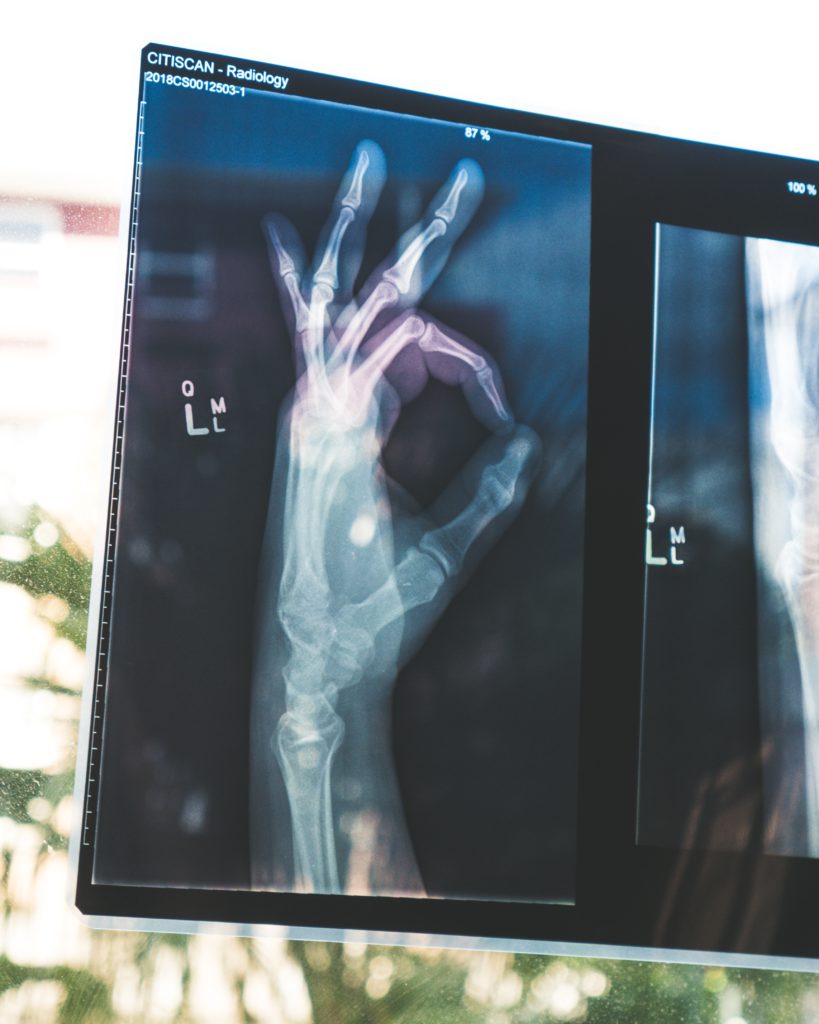Have you ever wondered about the possible risks of taking quercetin? In this informative article, we will explore the potential dangers that come with using this popular supplement. From its potential interactions with certain medications to its possible side effects, we will provide you with a comprehensive understanding of the risks associated with quercetin. So, if you’re considering adding this supplement to your routine, read on to make an informed decision about its use.
1. Overview of Quercetin
1.1 What is Quercetin?
Quercetin is a natural plant pigment and flavonoid that belongs to a group of compounds known as polyphenols. It is widely found in various fruits, vegetables, grains, and herbs, and is known for its antioxidant properties. Quercetin is often praised for its potential health benefits, including its ability to reduce inflammation, boost the immune system, and protect against chronic diseases.
1.2 Sources of Quercetin
Quercetin can be obtained from a wide range of food sources, making it easily accessible for most people. Foods that are rich in quercetin include apples, berries, citrus fruits, onions, kale, broccoli, spinach, red wine, green tea, and capers. It is important to note that the amount of quercetin in these foods may vary, depending on factors such as the variety, ripeness, and preparation methods.
1.3 Health Benefits of Quercetin
Quercetin has been studied extensively for its potential health benefits, and research suggests that it may offer a range of positive effects on the body. Some of the key health benefits associated with quercetin include its anti-inflammatory properties, which may help reduce the risk of chronic diseases such as heart disease and cancer. Additionally, quercetin has been shown to have antioxidant effects, which can help protect the body against oxidative stress and damage caused by free radicals. Furthermore, quercetin may also support the immune system, improve exercise performance, and promote heart health.
1.4 Mechanism of Action
The mechanism of action of quercetin involves its interaction with various enzymes and proteins in the body. As an antioxidant, quercetin can scavenge free radicals and prevent them from causing damage to cells and tissues. It can also inhibit the production of inflammatory molecules, thereby reducing inflammation in the body. Furthermore, quercetin has been shown to modulate the immune system by influencing the production and activity of immune cells. While the exact mechanisms are still being explored, it is believed that quercetin’s multiple pathways of action contribute to its potential health benefits.
2. Potential Risks of Taking Quercetin
While quercetin is generally considered safe when consumed in moderate amounts from food sources, taking quercetin supplements or high doses of quercetin may carry potential risks. It is important to be aware of these risks and exercise caution when considering supplementation. It is always recommended to consult with a healthcare professional before starting any new supplement regimen.
2.1 Allergic Reactions
Although rare, allergic reactions to quercetin can occur in some individuals. Symptoms of allergic reactions may include hives, itching, swelling, and difficulty breathing. If you are prone to allergies or have a history of allergic reactions to other substances, it is advisable to exercise caution and discontinue the use of quercetin if any allergic symptoms arise.
2.2 Drug Interactions
Quercetin may interact with certain medications, potentially affecting their effectiveness or causing unwanted side effects. In particular, quercetin has the potential to interact with blood thinners, such as warfarin, and immunosuppressants, such as cyclosporine. These interactions can increase the risk of bleeding or decrease the efficacy of immunosuppressant medications. If you are taking any medications, it is crucial to consult with your healthcare provider before adding quercetin supplements to your routine.
2.3 Gastrointestinal Issues
Quercetin supplementation has been associated with gastrointestinal side effects in some individuals. These may include nausea, vomiting, diarrhea, and stomach cramps. If you have a sensitive stomach or a history of gastrointestinal issues, it is recommended to start with a low dose of quercetin and monitor your body’s response. If these symptoms persist or worsen, it is best to discontinue the use of quercetin.
2.4 Hormonal Imbalances
Quercetin has been found to exhibit estrogenic effects, which means it can mimic the hormone estrogen in the body. This may disrupt hormonal balance in certain individuals, especially those with existing hormonal disorders. Additionally, quercetin has also been found to interfere with thyroid function, potentially impacting the production and regulation of thyroid hormones. If you have a history of hormonal imbalances or thyroid disorders, it is advisable to consult with a healthcare professional before considering quercetin supplementation.
2.5 Kidney Damage
Some studies suggest that high doses of quercetin may contribute to the formation of kidney stones or worsen existing kidney conditions. This is due to the ability of quercetin to increase the production of oxalate, a compound that can combine with calcium and form kidney stones. If you have a history of kidney stones or kidney problems, it is important to exercise caution when considering quercetin supplements and consult with a healthcare provider.
2.6 Liver Toxicity
In rare cases, high doses of quercetin may potentially cause liver toxicity. Although the exact mechanisms are not fully understood, it is believed that quercetin can interfere with liver enzymes, leading to liver damage. If you have a pre-existing liver condition or are taking medications that can affect liver function, it is essential to discuss the use of quercetin with your healthcare provider.
2.7 Blood Disorders
Quercetin has the potential to impact platelet function, which is essential for blood clotting. In individuals with bleeding disorders or those taking medications that affect platelet function, quercetin supplementation may increase the risk of bleeding and bruising. If you have a bleeding disorder or are taking medications that affect blood clotting, it is important to seek medical advice before considering quercetin supplementation.
2.8 Pregnancy and Breastfeeding
There is limited research on the safety of quercetin supplementation during pregnancy and breastfeeding. Therefore, it is recommended to avoid quercetin supplements during these periods unless specifically advised by a healthcare professional. It is always best to prioritize the health and safety of both the mother and the baby.
2.9 Quercetin Overdose
Taking excessively high doses of quercetin, especially in supplement form, can potentially lead to an overdose. Symptoms of quercetin overdose may include headaches, dizziness, stomach pain, and elevated liver enzymes. It is crucial to follow the recommended dosage guidelines provided by the manufacturer or as advised by a healthcare professional to avoid the risk of overdose.
2.10 Lack of Long-term Safety Data
While quercetin has been studied extensively for its potential health benefits, there is a lack of long-term safety data regarding the use of quercetin supplements. Most research has focused on short-term effects, and the impacts of long-term quercetin supplementation are not yet fully understood. Therefore, it is important to approach quercetin supplementation with caution and consider the potential risks.

3. Allergic Reactions
3.1 Symptoms of Allergic Reactions
Allergic reactions to quercetin are rare but can occur in individuals who are sensitive or allergic to the compound. Symptoms of allergic reactions may include hives, itching, swelling, rash, and difficulty breathing. If you experience any of these symptoms after taking quercetin supplements, it is crucial to seek medical attention immediately.
3.2 Anaphylaxis
In severe cases, an allergic reaction to quercetin can lead to anaphylaxis, a severe and potentially life-threatening allergic reaction. Anaphylaxis is characterized by symptoms such as swelling of the face, lips, or throat, difficulty breathing, rapid heartbeat, and a drop in blood pressure. Anaphylaxis requires immediate medical attention and the administration of epinephrine to alleviate symptoms and prevent further complications.
3.3 Precautions for Individuals with Allergies
If you have a known allergy to quercetin or other flavonoids, it is important to avoid quercetin supplements altogether. Always read product labels carefully and consult with a healthcare professional before starting any new supplement regimen, especially if you have a history of allergies or allergic reactions to other substances.
4. Drug Interactions
4.1 Quercetin and Blood Thinners
Quercetin has the potential to interact with blood-thinning medications such as warfarin, increasing the risk of bleeding. Quercetin can inhibit the activity of certain enzymes involved in blood clotting, affecting the effectiveness of these medications. If you are taking blood thinners or anticoagulants, it is essential to consult with your healthcare provider before considering quercetin supplementation to avoid potential complications.
4.2 Quercetin and Immunosuppressants
Quercetin may also interact with immunosuppressant medications, such as cyclosporine, which are commonly prescribed to prevent organ rejection in transplant recipients. Quercetin can interfere with the metabolism of these medications, potentially leading to reduced effectiveness. If you are taking immunosuppressants, it is important to discuss the use of quercetin with your healthcare provider to ensure that there are no negative interactions or compromised efficacy of your medications.
4.3 Precautions for Concurrent Medication Use
If you are currently taking any medications, it is crucial to inform your healthcare provider about your interest in quercetin supplementation. They can assess the potential drug interactions and advise you on the appropriate dosage and timing to minimize any risks. It is never recommended to self-medicate with quercetin or combine it with medications without professional guidance.

5. Gastrointestinal Issues
5.1 Nausea and Vomiting
Quercetin supplementation has been associated with gastrointestinal side effects in some individuals. Nausea and vomiting are among the possible symptoms that may occur. If you experience these symptoms after taking quercetin supplements, it is best to discontinue use and consult with a healthcare professional for further guidance.
5.2 Diarrhea
Diarrhea is another potential gastrointestinal side effect that some individuals may experience when taking quercetin supplements. This may be due to the laxative properties of quercetin or its effects on gut motility. If you develop diarrhea while taking quercetin, it is advisable to consult with a healthcare provider to determine the appropriate course of action.
5.3 Stomach Cramps
Quercetin can sometimes cause stomach cramps or abdominal discomfort, particularly in individuals with sensitive stomachs or pre-existing gastrointestinal issues. These symptoms may vary in intensity and duration. If you experience persistent or severe stomach cramps after taking quercetin supplements, it is recommended to seek medical advice.
5.4 Precautions for Individuals Prone to Gastrointestinal Problems
If you have a history of gastrointestinal issues or a sensitive stomach, it is advisable to start with a low dose of quercetin when considering supplementation. This allows you to gauge your body’s response and assess any potential adverse effects. Consulting with a healthcare professional can also provide personalized guidance based on your specific condition and needs.
6. Hormonal Imbalances
6.1 Estrogenic Effects
Quercetin has been found to exhibit estrogenic effects, meaning it can mimic the activity of the hormone estrogen in the body. This may disrupt hormonal balance, especially in individuals with existing hormonal imbalances or conditions such as polycystic ovary syndrome (PCOS) or estrogen-sensitive cancers. If you have a history of hormonal imbalances or such conditions, it is crucial to consult with a healthcare professional before considering quercetin supplementation.
6.2 Interference with Thyroid Function
Studies have shown that quercetin can interfere with thyroid function by inhibiting the activity of thyroid peroxidase, an enzyme essential for the production of thyroid hormones. In susceptible individuals, this interference may lead to imbalances in thyroid hormone levels and potentially impact thyroid function. If you have a thyroid disorder or are taking medication for thyroid conditions, it is important to discuss quercetin supplementation with your healthcare provider to ensure optimal thyroid health.
6.3 Precautions for Individuals with Hormonal Disorders
If you have a history of hormonal imbalances or disorders, it is advisable to exercise caution when considering quercetin supplementation. Regular monitoring and guidance from a healthcare professional are essential to assess the potential impact of quercetin on your hormonal health and to ensure the appropriateness of its use.

7. Kidney Damage
7.1 Quercetin and Oxalate Formation
Quercetin has the potential to increase the production of oxalate, a compound that can combine with calcium and form kidney stones. While more research is needed to fully understand this relationship, it is advisable for individuals with a history of kidney stones or kidney problems to use caution when considering quercetin supplementation. Consulting with a healthcare provider is essential to assess the potential risk and benefits in these cases.
7.2 Renal Toxicity
In rare cases, high doses of quercetin may contribute to renal toxicity, causing damage to the kidneys. The exact mechanisms are not well understood, but it is believed that quercetin can interfere with kidney function, potentially leading to complications. If you have pre-existing kidney conditions or are taking medications that affect kidney function, it is important to consult with your healthcare provider before considering quercetin supplementation.
7.3 Precautions for Individuals with Kidney Conditions
If you have kidney conditions or a history of kidney problems, it is crucial to discuss the potential risks and benefits of quercetin supplementation with your healthcare provider. They can provide personalized advice and recommend appropriate monitoring to ensure the safety of using quercetin.
8. Liver Toxicity
8.1 Effects on Liver Enzymes
Quercetin has been reported, although rarely, to cause liver toxicity in some individuals. This may be due to its potential effects on liver enzymes, which can lead to liver damage. If you have pre-existing liver conditions or are taking medications that affect liver function, it is important to consult with a healthcare professional before considering quercetin supplementation.
8.2 Precautions for Individuals with Liver Disease
Individuals with liver disease or compromised liver function should exercise caution when considering quercetin supplementation. Consulting with a healthcare provider is crucial to assess the potential risks, monitor liver function, and ensure the appropriateness of quercetin use in these specific cases.
9. Blood Disorders
9.1 Potential Impact on Platelet Function
Quercetin has the potential to affect platelet function, which is critical for blood clotting. In individuals with bleeding disorders or those taking medications that affect platelet function, quercetin supplementation may increase the risk of bleeding or bruising. If you have a bleeding disorder or are on medications that affect blood clotting, it is important to seek medical advice before considering quercetin supplementation.
9.2 Precautions for Individuals with Bleeding Disorders
If you have a bleeding disorder or are taking medications that affect blood clotting, it is crucial to consult with a healthcare professional before considering quercetin supplementation. They can assess the potential risks, monitor your condition appropriately, and provide guidance tailored to your specific needs.
12. Lack of Long-term Safety Data
12.1 Current State of Knowledge
While numerous studies have explored the potential health benefits of quercetin, the long-term safety of its supplementation remains unclear. Most research has focused on short-term effects and has not extensively examined the potential risks associated with prolonged use. Therefore, it is essential to approach quercetin supplementation with caution, especially in the absence of long-term safety data.
12.2 Importance of Further Research
The lack of long-term safety data highlights the need for further research on quercetin supplementation. Long-term studies are necessary to determine the potential risks and benefits associated with prolonged use. Until more comprehensive research is conducted, it is advisable to consult with a healthcare professional and make informed decisions based on individual circumstances, balancing potential benefits with potential risks.






